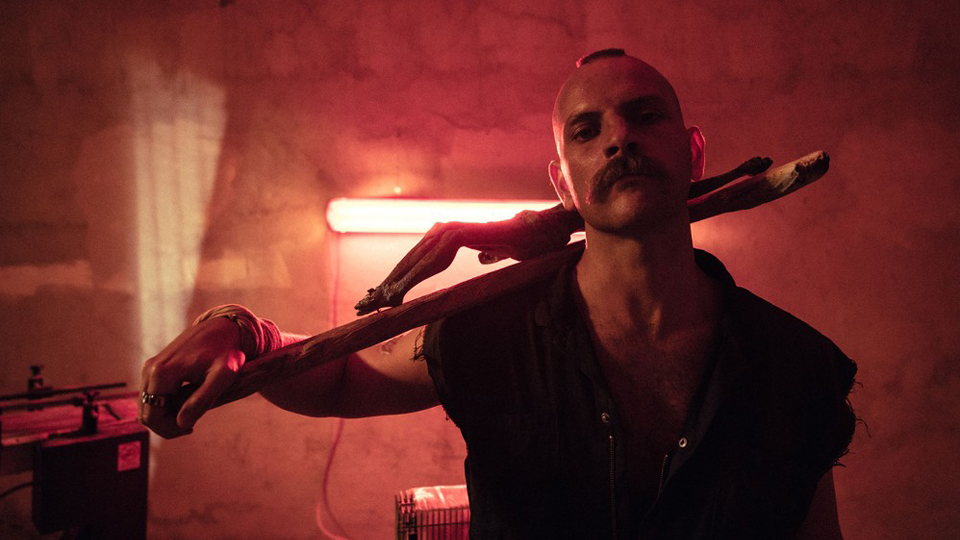Mondocane
Dogworld
Regie: Alessandro Celli
Italien
Nachtschiene | OmeU (Italienisch) | 2021 | 115 min | im Wettbewerb
Dieser Film läuft ausschließlich im Online-Festival.
Zum Trailer
Inhalt
In einer nicht allzu fernen Zukunft. Tarent ist eine mit Stacheldraht umzäunte Geisterstadt in einem verseuchten Gebiet, welches nicht einmal die Polizei zu betreten wagt. Nur die Ärmsten sind zurückgeblieben und kämpfen ums Überleben, während eine kriminelle Bande namens "Die Ameisen" diese Leere ausnutzt und streunende Kinder für ihre Raubzüge und Revierkämpfe rekrutiert. Die beiden dreizehnjährigen Waisenjungen Pietro und Christian träumen seit ihrer Kindheit davon, sich dieser Bande anzuschließen. Pietro bekommt von der rechten Hand des Ameisen-Anführers den Auftrag, als Aufnahmeprüfung einen Brandanschlag zu verüben. Christian hilft Pietro bei der Ausführung und wird ebenfalls Mitglied der Bande. Von nun an wird ihre Freundschaft auf eine harte Probe gestellt...
Storyline
In a not-too-distant future, Taranto is a ghost town fenced with barbed wire, which nobody, not even the Police, dares to enter. Only the poorest have remained fighting for survival, while a criminal gang, the Ants, exploit this emptiness recruiting stray kids. Two thirteen-year-old orphans grew up dreaming of joining the gang. Pietro, known as Mondocane for passing the gang’s initiation trial, imposes Christian into the gang, though something breaks their balance, threatening their friendship.
Über den Film
Alessandro Celli’s first work (...) is a laudable Italian attempt to tell a global story in a counter-utopian reality, which is one third authorial work, two thirds action and light-hearted violence. The latter draw impetus from the vast universe ranging this way and that way across the ocean, from John Carpenter to Sergio Martino, from George Miller to Lord of the Flies and Waterworld, but also from countless graphic novels, shoot-‘em-up video games and various B movies from the 70s. The authorial third of the film reassures environmentalist causes concerned with the disastrous matter of the Ilva steel plants in Taranto, which have poisoned and killed hundreds of workers and townspeople over the past few decades and, more generally, with the planet’s threatened ecosystem.
Camillo De Marco, www.cineuropa.org
The world is realistic and geographically localized (...) a visually valid ecosystem that recalls other worlds built in the reference film genre and in which, conceptually, it is possible to contextualize the birth of a construction like that of the tribe. A world where idols are found at the bottom of the sea and the innocent shoot from scooters and lick toads. In which all you can hope for is to find a family of such incivility as not to cry for its children, but rather to encourage them to follow a code of behavior that presents them to the world as distorted figures. Forms of life grown to regress. Children who become adults the less they are.
Jacopo Fioretti Raponi, www.italy24news.com
| Regie | Alessandro Celli |
| Drehbuch | Alessandro Celli Antonio Leotti |
| Kamera | Giuseppe Maio |
| Schnitt | Clelio Benevento |
| Ton | Angelo Bonanni |
| Musik | Federico Bisozzi Davide Tomat |
| Produzent | Matteo Rovere Gianluca Cavalletto |
| Darsteller | Alessandro Borghi (Testacalda) Dennis Protopapa (Piero / Mondocane) Giuliano Soprano (Christian / Pisciasotto) Barbara Ronchi (Katia) Ludovica Nasti (Sabrina) |
